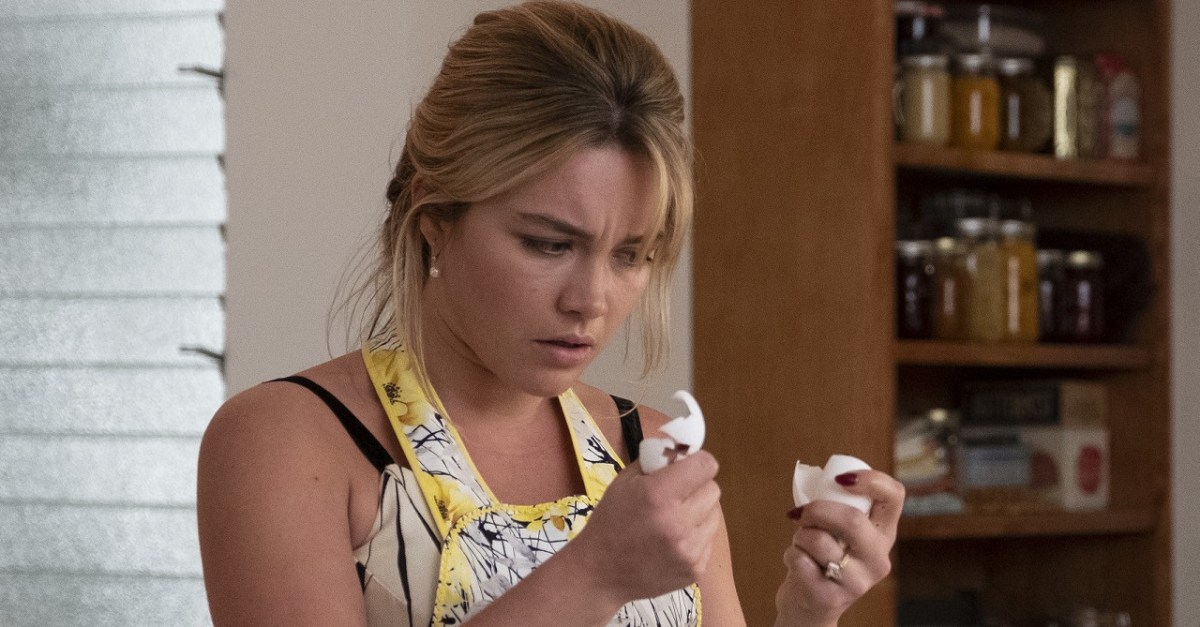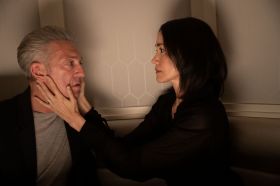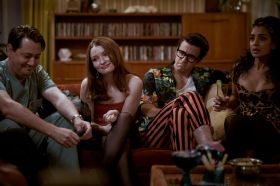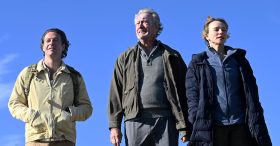There’s some kinds of publicity you just can’t buy. If you haven’t been following the train wreck that’s surrounded Olivia Wilde’s second film as director, you’ve been missing out on some prime 2022 insanity. How bizarre have things become around Don’t Worry Darling? Strap yourselves in:
Did star Harry Styles really spit on co-star Chris Pine at a media event? Was Shia LeBeouf fired by Wilde for bad behaviour, or did Wilde beg him to return (and stab other cast members in the back) after he quit? Did lead Florence Pugh really clash with Wilde – possibly because Wilde was distracted from filming due to her on-set relationship with Styles – to such an extent that she would only agree to do ‘limited publicity’ for the film?
These minor kerfuffles have built into a media event in itself, a prism through which all manner of social obsessions and fixations can be glimpsed. In its wake, the film itself can’t help but feel a little stale. A collection of tired tropes and befuddling questions, it largely skates by on some decent performances and a mood that (intentionally) curdles in a fashion that’s all too-familiar. Even a well-worn story can surprise someone who’s never encountered it before – but if you’re surprised by Don’t Worry Darling, you definitely need to get out more.
Read: Films 2022: coming to cinemas in Australia from July to December
Spoiler alert
The planned desert community of Victory is a 50s suburban paradise (uh oh). There, the slick and suited husbands drive off to work in unison, leaving their wives to lounge around getting drunk by the pool when they’re not cooking, cleaning, and trying not to notice the dancing cartoon skeletons on the television set.
Asking questions is a no-no. Fortunately, Alice (Pugh) is too busy enjoying a very busy sex life with go-getter husband Jack (Styles) to worry about what the men actually do each day, or why they seemingly have a cult-like devotion towards their boss Frank (Pine). But while her neighbour Bunny (Wilde) is fine with the way things are, Margaret (KiKi Layne) has never been the same since she wandered out into the desert.
Her malaise could be the result of restrictive 50s gender roles. The local doctor (Timothy Simons) certainly seems to be fitting the stereotype as far as peddling sedatives goes. But maybe she saw something she shouldn’t have out there. And when Alice sees a plane fall out of the sky, she decides to head into the wasteland herself.
Plot vs Pugh
Pugh is at the centre of almost every scene, which is fortunate as she’s the best thing about this film. While the film’s centre stretch drags – there’s a point where the story basically resets and starts again – and the third act throws almost everything at the wall (a horde of sinister red jumpsuit wearing goons! A car chase! Is that a dead body?) she’s compelling and engaging no matter what.
Across from her, Styles is perfectly serviceable in his role; his casting actually makes more sense as the film goes, with a late development entertainingly undercutting both his role here and his public persona. And while a syrupy-smooth Pine doesn’t seem to be playing any identifiable kind of human being, he certainly seems to be having fun with whatever it is he’s doing.
Sadly, they’re all bogged down in the kind of plot that relies entirely on momentum to hold it together. The explanations only raise more questions; the whole thing falls apart almost as soon as it reveals itself. Worse, while there’s a clear and obvious point being made here, it doesn’t really fit with the story being told. The real dark side to living in Victory – for Alice at least – has nothing to do with the lifestyle being lived in Victory: you could deliver the exact same moral lesson with even more force if the 50s suburban dream was something else entirely.
Read: Blonde on Netflix: a grotesque, salacious take on an icon
But then you wouldn’t have the fun of hanging around a slightly creepy version of a classic sitcom, and this takes full advantage of its luxe locations and striking setting. Cinematographer Matthew Libatique serves up a series of impeccable visuals, and for a film literally about seductive surfaces this certainly presents audiences with plenty to be seduced by. Unfortunately, it’s also a film about how those surfaces are ultimately unsatisfying.
It probably didn’t need to be quite as effective at making that point.
Two and a half stars
Don’t Worry Darling is in cinemas nationally from 6 October 2022.
Actors:
Director:
Format: Movie
Country:
Release:





